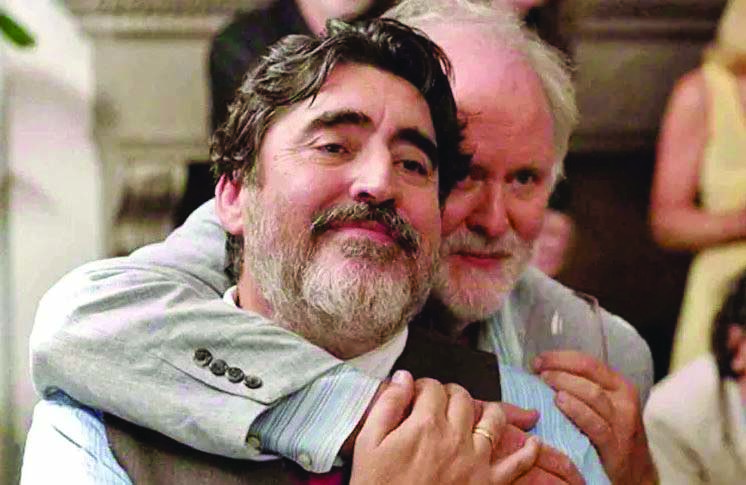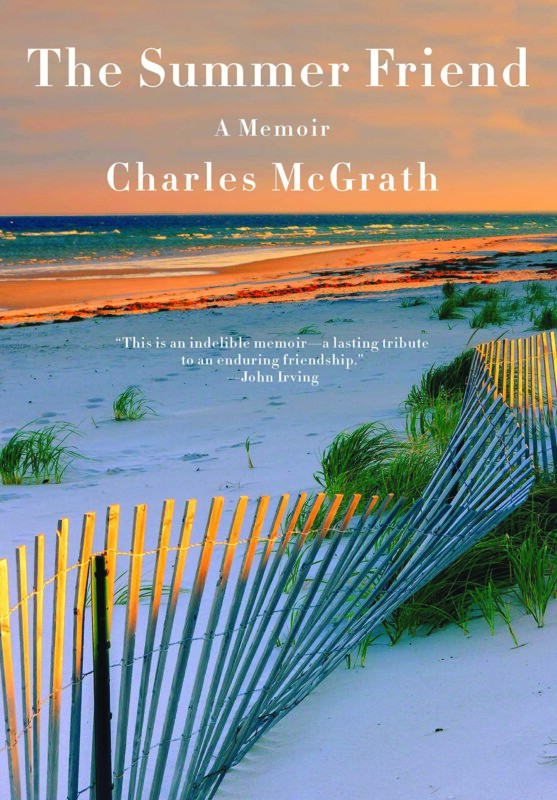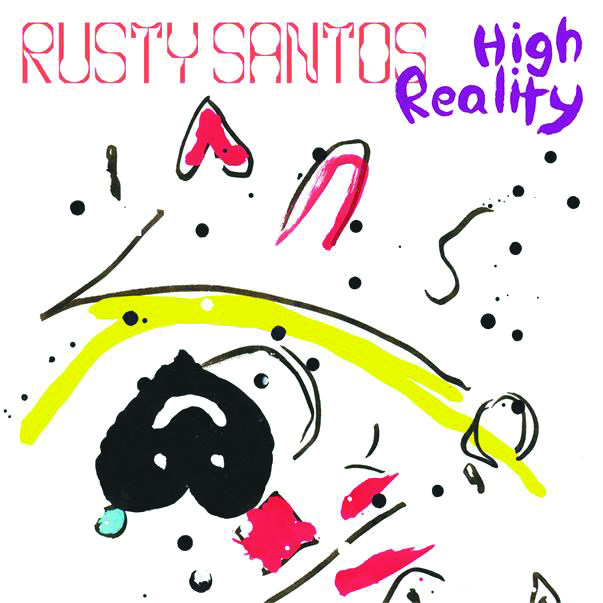The Summer Friend, by Charles McGrath (Knopf, 227 pages)
For people of a certain socioeconomic class, “summer” has long been more of a verb than a noun. To summer at the Cape or in Newport, or even spend a month at some Dirty Dancing type resort, was a privilege far removed from going somewhere with the kids for a week or two.
In his memoir The Summer Friend, Charles McGrath acknowledges the class divide in our experience of summer, writing, “In this country, the idea of vacations … didn’t come along until the nineteenth century, and it was initially embraced by people who didn’t work all that hard to begin with. … Working people didn’t get time off, and farmers, in particular, were busiest during the hot summer months.”
So thank the rich if you enjoy summer because the season as we know it began with the wealthy embarking for their “camps” in the Adirondacks and “cottages” in Newport to escape the heat of the South and cities. Of course, summer activities were quite different then, because in the 1800s swimming and sunning weren’t popular activities: “What people mostly did was stroll around and wait for the next meal, sort of like people in rest homes,” McGrath drolly observes.
Not so McGrath, a former editor for The New Yorker and The New York Times, whose remembrance of summer is much more action-packed and includes a friend, also named Chip, who hailed from New Hampshire.
That friendship, cut short by metastasized prostate cancer, is ostensibly the subject of this slim, often elegant memoir. However, the seasonal friendship, though it spanned decades, didn’t provide enough material to fill a book, and a more accurate title would have been “My Summer House,” filled as the book is with McGrath’s reflections on his own summers, both as a child and as a parent. (He’s the father of New Yorker writer Ben McGrath, who also published a memoir about a doomed friendship this year; it’s called Riverman.)
McGrath’s summer friend was Chip Gillespie, a New Hampshire native whose father taught (and was briefly the headmaster) at Phillips Exeter Academy. The men met — at a square dance — because McGrath and his wife had decided they wanted to spend their summers as they did in childhood, decamping to a primitive cottage for an extended period of time instead of flying the family to a Disney resort or some exotic locale.
As it turned out, both the McGraths and the Gillespies had young children of the same gender and age, and as so often happens, the need for children’s playmates helped to facilitate the parents’ friendship, as did the natural gregagriousness of Chip and his wife, Gay. (McGrath would say at Gillespie’s funeral that, “of his many abilities, Chip’s greatest talent was for friendship.”)
The Gillespies had the McGraths over for dinner the following night, and there was soon after a playdate for their daughters from which Chip Gillespie arrived on the water in a sailboat to pick his daughter up by towing her across the channel to their house. “Who knew you could do that with a sailboat, and how could you not want to be friends with the guy who thought of it?” McGrath writes.
It’s not that McGrath wasn’t accomplished in his own right, but Gillespie, an architect five years older, seemed to have the more interesting life, and McGrath came to be something of a fanboy. Gillespie was the instigator behind the pair’s more daring adventures, such as jumping off bridges at night and skinny-dipping with their wives, and it was Gillespie who taught his city friend how to trap lobsters, and to illegally obtain fireworks from Phantom Fireworks in Seabrook.
Unlike the McGraths, the Gillespies lived in the unidentified beach town in Massachusetts, year-round; they “made summering into something like an occupation,” McGrath writes. There was a built-in imbalance to their friendship since McGrath was there on vacation while Gillespie was still working; the Gillespie family vacationed in Canada.
But the two took to hanging out together when Gillespie wasn’t working, and while it appears they didn’t talk much, they participated in the storied rites of affluent male-bonding: playing golf, sailing, checking scores on ESPN, and performing random chores like sanding their boats and hauling trash to the dump. There was an easy camaraderie between the men, and they picked up the friendship easily when the McGraths came to town. Then Gillespie got sick.
Diagnosed with prostate cancer, he fought it off for a few years, but the cancer spread catastrophically, to the point of destroying his hip and eventually claiming his life. It appears that Gillespie worked to hide the extent of his illness from his friend, or maybe they just weren’t that close after all. For a significant friendship, the men seemed to not talk much, at least not about significant stuff, and this is passed off as being common among men. “Call it cowardice if you want, but my sense was that he didn’t want to talk about death or friendship either. I thought it was enough that we were just there in the same room,” McGrath wrote.
At the end, though, McGrath expresses his profound regret at what was not said; when he finally gets around to expressing how he feels about Gillespie and their friendship, it’s in a letter delivered in the final months of Gillespie’s life, and McGrath admits that it was too little, too late. “This book is what I should have given him,” he confesses.
Few people lose friends or family without pangs of guilt and regret, so in this, The Summer Friend is a cautionary tale. It is also a fine summer musing, though mostly for people of a certain age and class. Your cousin from Boston may not care much for it, but your grandfather from Newport definitely will. B
Book Notes
People in the U.K. forgave Americans for stealing the sitcom The Office, the actor Benedict Cumberbatch and even the Duke and Duchess of Sussex. But they still haven’t gotten over how we took over the Man Booker Prize.
The most prestigious literary award in the U.K., the Booker Prize honors the best fiction written or translated into English and it was only opened to American authors in 2014. It didn’t take long for Americans to win: Paul Beatty won in 2016 for The Sellout and George Saunders in 2017 for Lincoln in the Bardo, leading critics to grouse that Americans had “colonized” the award and should be excluded again. That hasn’t happened, and this year’s longlist will likely renew the complaining: six of the 13 novels on the list are from the U.S.
And one, Nightcrawling (Knopf, 271 pages), has the distinction of the youngest author ever to be nominated for the prize. Leila Mottley is now 20 and started writing the novel when she was 16. (Last month, we gave it an “A.”)
If you’re playing at home (highly advised), here are the other American books to read, or at least skim, before the 2022 winner is announced on Oct. 17:
Oh William! by Elizabeth Strout (Random House, 256 pages) is about “a grief-stricken woman who helps her ex-husband investigate his family past,” according to NPR.
Booth by Karen Joy Fowler is a fictionalized story about the family of the man who killed Abraham Lincoln (G.P. Putnam’s Sons, 480 pages).
Trust (Riverhead, 416 pages) by Hernan Diaz is about New York tycoons during the 1920s and ’30s. A New York Times review called it “ intricate, cunning and constantly surprising.
After Sappho (Liveright, 288 pages) by Selby Wynn Schwartz is a publisher’s dream, an award nominee before it’s even been released. Scheduled for January, it’s been described as “speculative biography” tying together the lives of diverse artists such as Virginia Woolf and Romaine Brooks and imagining them as queer trailblazers.
The Trees by Percival Everett (Graywolf, 288 pages) is a thriller/mystery about racism and lynching set in rural Mississippi. Given the subject matter, it’s a nod to the author’s skill that some of the reviews mention that it’s often witty.
Finally, shoutout to the Irish author Claire Keegan, whose Small Things Like These is the shortest book nominated in Man Booker history, coming in at 116 pages.
Book Events
Author events
• KATHLEEN BAILEY and SHEILA BAILEY present their book New Hampshire War Monuments: The Stories Behind the Stones at Gibson’s Bookstore (45 S. Main St., Concord, 224-0562, gibsonsbookstore.com) on Thursday, Aug. 11, at 6:30 p.m.
• R.A. SALVATORE presents Glacier’s Edge at Gibson’s Bookstore (45 S. Main St., Concord, 224-0562, gibsonsbookstore.com) on Friday, Aug. 12, at 6:30 p.m.
• E.B. BARTLES will sign and discuss (with Sy Montgomery) her book Good Grief: On Loving Pets Here and Hereafter at the Toadstool Bookshop in Peterborough (12 Depot Square; 924-3543, toadbooks.com) on Saturday, Aug. 13, at 11 a.m.
• CASEY SHERMAN presents Helltown at the Bookery (844 Elm St., Manchester, bookerymht.com, 836-6600) on Sunday, Aug. 14, at 1:30 p.m. Free event; register at www.bookerymht.com/our-events.
• VIRGINA CHAMLEE presents Big Thrift Energy: The Art and Thrill of Finding Vintage Treasuresat Gibson’s Bookstore (45 S. Main St., Concord, 224-0562, gibsonsbookstore.com) on Monday, Aug. 15, at 6:30 p.m.
• TOM MOORE Andy’s Summer Playhouse (582 Isaac Frye Highway in Wilton; 654-2613, andyssummerplayhouse.org) and Toadstool Bookshop will present an event with Tom Moore, one of the authors of the book Grease, Tell Me More, Tell Me More: Stories from the Broadway Phenomenon That Started It All on Friday, Aug. 19, at 5 p.m. at Andy’s Summer Playhouse. See andyssummerplayhouse.org/grease to RSVP to the event.
Poetry
• OPEN MIC POETRY hosted by the Poetry Society of NH at Gibson’s Bookstore (45 S. Main St., Concord, 224-0562, gibsonsbookstore.com), starting with a reading by poet Sam DeFlitch, on Wednesday, July 20, from 4:30 to 6 p.m. Newcomers encouraged. Free.
• DOWN CELLAR POETRY SALON Poetry event series presented by the Poetry Society of New Hampshire. Monthly. First Sunday. Visit poetrysocietynh.wordpress.com.
Writers groups
• MERRIMACK VALLEY WRITERS’ GROUP All published and unpublished local writers who are interested in sharing their work with other writers and giving and receiving constructive feedback are invited to join. The group meets regularly Email pembrokenhtownlibrary@gmail.com.
Book Clubs
• BOOKERY Monthly. Third Thursday, 6 p.m. 844 Elm St., Manchester. Visit bookerymht.com/online-book-club or call 836-6600.
• GIBSON’S BOOKSTORE Online, via Zoom. Monthly. First Monday, 5:30 p.m. Bookstore based in Concord. Visit gibsonsbookstore.com/gibsons-book-club-2020-2021 or call 224-0562.
• TO SHARE BREWING CO. 720 Union St., Manchester. Monthly. Second Thursday, 6 p.m. RSVP required. Visit tosharebrewing.com or call 836-6947.
• GOFFSTOWN PUBLIC LIBRARY 2 High St., Goffstown. Monthly. Third Wednesday, 1:30 p.m. Call 497-2102, email elizabethw@goffstownlibrary.com or visit goffstownlibrary.com
• BELKNAP MILL Online. Monthly. Last Wednesday, 6 p.m. Based in Laconia. Email bookclub@belknapmill.org.
• NASHUA PUBLIC LIBRARY Online. Monthly. Second Friday, 3 p.m. Call 589-4611, email information@nashualibrary.org or visit nashualibrary.org.
Language
• FRENCH LANGUAGE AND LITERATURE CLASSES
Offered remotely by the Franco-American Centre. Six-week session with classes held Thursdays from 6:30 to 8:30 p.m. $225. Visit facnh.com/education or call 623-1093.






